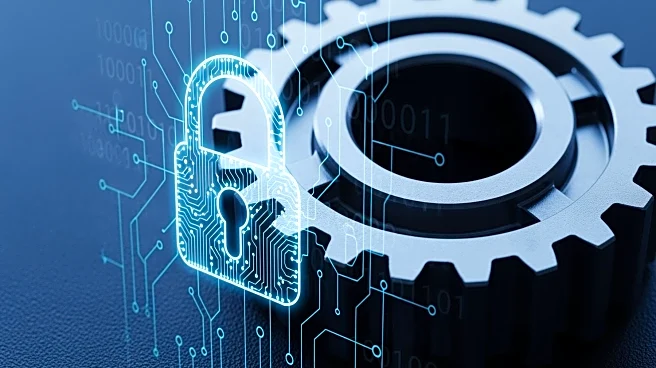What's Happening?
Manufacturers are increasingly targeted by ransomware attacks, with incidents causing significant disruptions and financial losses. Boeing and Jaguar Land Rover are among the companies that have faced substantial demands and operational halts due to cyber
breaches. The manufacturing sector is particularly vulnerable, with an average of 1,585 weekly attacks per organization globally, marking a 30% increase from the previous year. State-linked hacking groups, notably from China, are involved in industrial espionage, while financially motivated ransomware attacks are also on the rise. The supply chain is identified as a critical weak point, with attackers exploiting unsecured connections and IoT devices. AI is enhancing the capabilities of cybercriminals, making attacks more sophisticated and harder to detect.
Why It's Important?
The escalation of ransomware attacks poses a severe threat to the manufacturing industry, which is crucial for economic stability and national security. The financial impact is profound, with companies like Jaguar Land Rover experiencing losses of around £1.9 billion. The sector's reliance on continuous operations makes it a prime target for cybercriminals. As AI-driven attacks become more prevalent, manufacturers must prioritize cybersecurity to protect intellectual property and ensure operational continuity. The government's recent advice underscores the urgency of adopting robust cybersecurity measures to mitigate these threats.
What's Next?
Manufacturers are advised to enhance their cyber resilience by investing in proactive defense strategies and securing their supply chains. This includes enforcing cybersecurity standards across vendors and partners, and implementing advanced detection and data-loss prevention systems. The industry is increasingly aligning cybersecurity initiatives with business goals, with many companies investing in machine learning and generative AI defenses. As cyber threats continue to evolve, manufacturers must adapt their strategies to stay ahead and protect their production lines and intellectual property.
Beyond the Headlines
The rise in ransomware attacks highlights the ethical and legal challenges in cybersecurity, particularly concerning data privacy and intellectual property protection. The integration of AI in cyber defense and attack strategies raises questions about the balance between technological advancement and security. Manufacturers must navigate these complexities while ensuring compliance with regulations and maintaining trust with stakeholders.
















